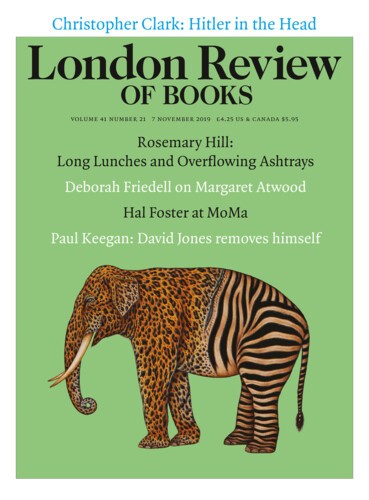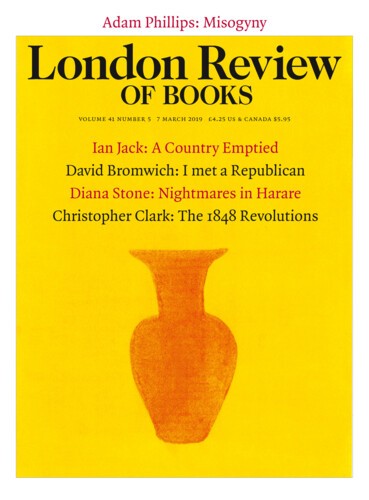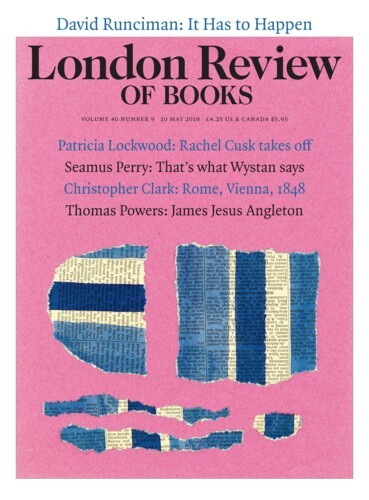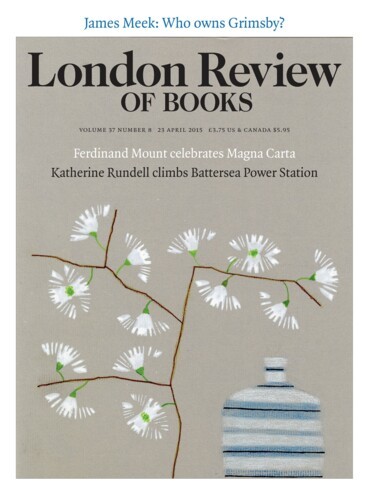Still messing with our heads: Hitler in the Head
Christopher Clark, 7 November 2019
Knausgaard recalls the sensation of near nausea that overcame him as he began reading Mein Kampf: ‘Hitler’s words and Hitler’s thoughts were thereby admitted to my own mind and for a brief moment became a part of it.’ Brendan Simms confesses a similar apprehension: ‘the author,’ he writes, ‘has tried throughout to get into Hitler’s mind, without letting [Hitler] get into his.’ Whether Hitler gets into our minds, or we mislay something of our own inside his, it’s clear that this strange and hateful man, who has been dead for 74 years, is still messing with our heads.





